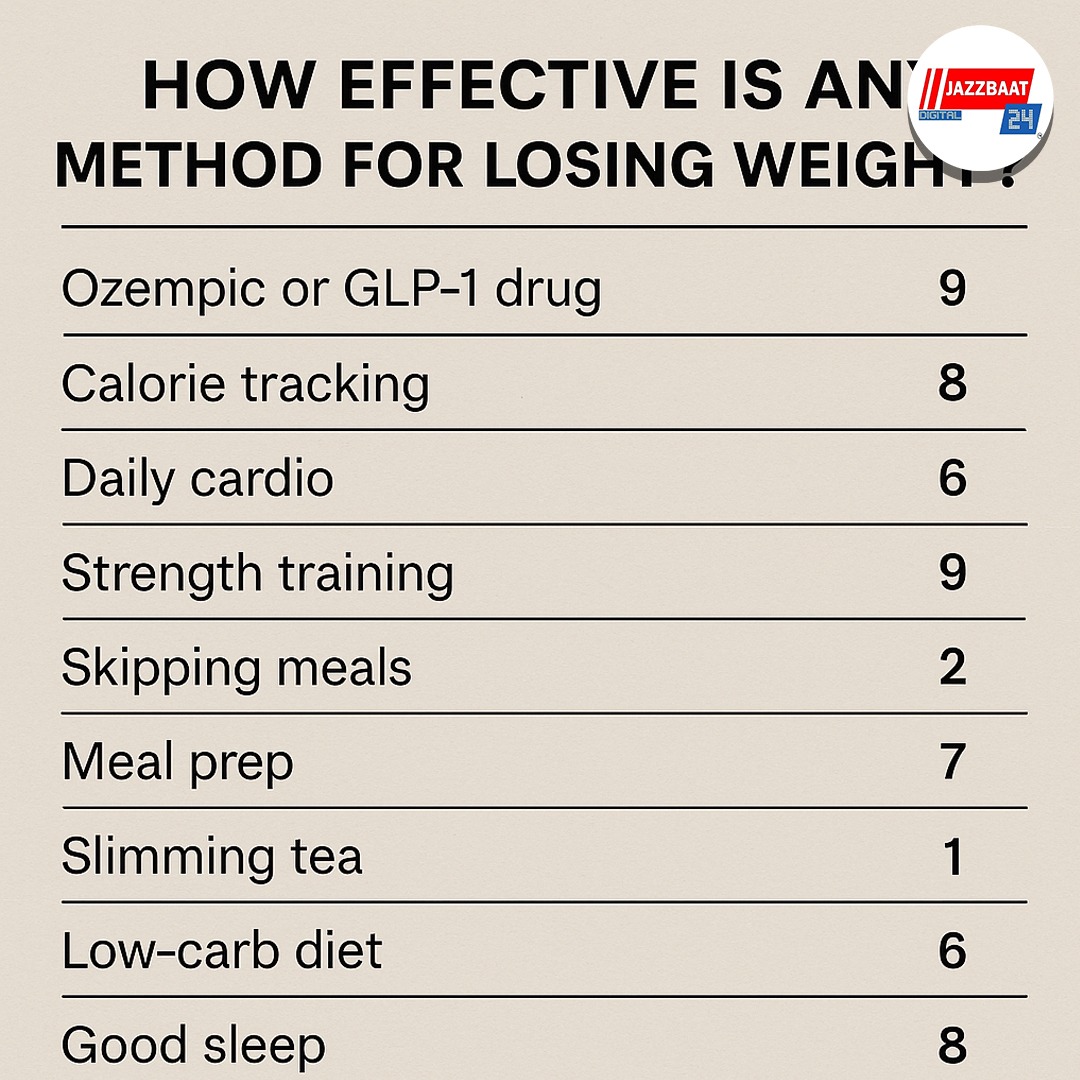
Currently, many methods are being promoted in the name of weight loss—some say that dieting is all it takes, while others say exercise or drinking some magic tea. But which of these methods is really effective and which is just a myth? This question comes to almost everyone's mind. This is exactly what Dr. Chinyere Nedo, a family doctor by profession and a regular health advisor on Instagram, has explained in detail.
In a post on April 3, he evaluated the effectiveness of 10 popular methods of weight loss and gave each a number out of 10. Let's take a look one by one at which method really works, and which is just a publicity stunt.
Ozempic or GLP-1 drug –
Currently, many people are using GLP-1 group drugs like Ozempic to lose weight. Doctors believe that using this drug along with diet and exercise can yield good results. However, it has some side effects, such as nausea, upset stomach, or excessive weight loss, which can sometimes be dangerous. Therefore, this medicine should only be used on the advice of a doctor.
Calorie Tracking –
Those who regularly keep track of their calorie intake find it much easier to control their weight. Calorie tracking is an effective method because it allows people to understand how much food they are eating and how many calories are in each food. However, it can sometimes cause mental stress due to excessive attention.
Daily Cardio –
You cannot lose weight in the long term by doing cardio exercises alone. The body burns some calories during cardio exercises, but it is not very helpful for building muscle. Strength training is also essential for losing weight.
Strength Training –
This is a very effective method for building muscle and burning fat. Strength training is very important if you want to control your weight in the long term. It not only keeps the body fit, but also increases metabolism, which increases the rate of burning calories every day.
Skipping meals –
Many people think that if they skip a meal or a day, they will lose weight. This is a completely wrong idea. Eating on an empty stomach for a long time has a negative effect on the body. Due to glucose deficiency, dizziness, weakness and irritability occur. In addition, it slows down the metabolism, which is an obstacle to weight loss.
Meal prep –
Preparing food in advance makes it possible to eat the right food without reaching for unhealthy foods during meals. On the one hand, it saves time, as well as helps in controlling weight.
Slimming tea –
This type of tea usually acts as a diuretic. It removes water from the body, resulting in temporary weight loss, but it is not permanent. In addition, the risk of dehydration and electrolyte imbalance increases. Therefore, doctors have considered it practically ineffective.
Low-carb diet –
Although a carb-free diet helps in losing weight in the short term, it is not realistic in the long term. Not all types of carbs are bad. Rather, good carbs such as oats, brown rice or fruits are necessary for the body. So it is better to choose the right carbs.
Good sleep –
It is practically impossible to lose weight without proper sleep. During sleep, the body's hormone balance is right, stress is reduced and metabolism works properly. Adults need at least 7-8 hours of sleep. According to Dr. Nedo, it is a kind of free weight loss tool.
Juice cleanse –
Although there is a lot of promotion of 'detox juice' or 'juice cleanse' on social media, according to doctors, it is a complete scam. The body detoxifies itself through the liver and kidneys. Drinking juice separately does not cleanse anything. Moreover, the high sugar content in these juices increases weight.
Losing weight does not mean starving yourself or drinking only slimming tea. Rather, proper sleep, nutritious food, strength training and realistic habits can reduce weight and keep it off in the long term. Therefore, it is important to get accurate information and doctor's advice before choosing any method.
This report is written for informational purposes only. It is not a substitute for treatment. If you have any physical problems, seek medical advice.